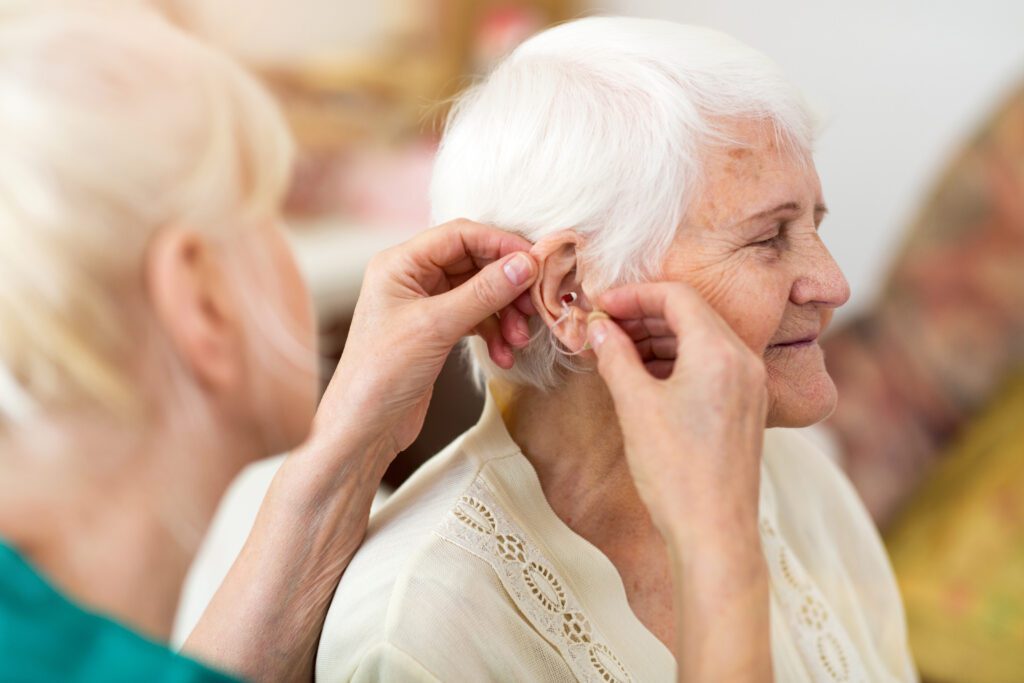Hearing aids are valuable tools that can significantly enhance the quality of life for seniors experiencing hearing loss. However, choosing the right hearing aid involves more than just picking a device off the shelf. Here are some crucial factors that seniors should consider when purchasing a hearing aid to ensure it meets their specific needs.
Understanding the Limitations and Benefits of Hearing Aids
Realistic Expectations
Hearing aids can greatly improve communication by amplifying sounds, but they cannot fully replicate the natural hearing process. It’s essential for seniors to have realistic expectations. A hearing aid will not restore normal hearing but will aid in better sound perception, especially in quiet environments and one-on-one conversations.
Importance of Proper Fitting
A hearing aid must be properly fitted to the individual’s specific hearing loss profile. Hearing aids are customized based on the type and severity of hearing loss, which means an accurate hearing test by a professional audiologist is crucial before purchasing a device.
Factors to Consider When Choosing a Hearing Aid
1. Hearing Assessment
Before buying a hearing aid, seniors should undergo a comprehensive hearing test. This assessment will determine the degree and type of hearing loss and help in selecting a device that offers the right level of amplification and frequency compensation.
2. Types of Hearing Aids
There are several types of hearing aids, including behind-the-ear (BTE), in-the-ear (ITE), and completely-in-canal (CIC) models. Each type has its advantages and disadvantages:
- BTE Hearing Aids:Suitable for all types of hearing loss and offer powerful amplification. They are also easier to handle and maintain.
- ITE Hearing Aids:Fit directly into the outer ear and are less visible than BTE models. They are suitable for mild to severe hearing loss.
- CIC Hearing Aids:Almost invisible as they fit deep inside the ear canal. Suitable for mild to moderate hearing loss but can be more challenging to handle due to their small size.
3. Features and Technology
Modern hearing aids come with various features such as noise reduction, directional microphones, Bluetooth connectivity, and rechargeable batteries. Seniors should consider which features are most important for their lifestyle:
- Noise Reduction:Helps to filter out background noise, making it easier to focus on conversations.
- Directional Microphones:Enhance the ability to hear sounds from a specific direction, which is useful in noisy environments.
- Bluetooth Connectivity:Allows the hearing aid to connect with smartphones and other devices for streaming audio directly.
- Rechargeable Batteries:Offer convenience and eliminate the need to frequently change batteries.
4. Comfort and Ease of Use
Comfort is crucial for the regular use of hearing aids. Seniors should ensure that the hearing aid fits well and does not cause discomfort. Additionally, the device should be easy to handle, especially for those with dexterity issues. Some hearing aids come with remote controls or smartphone apps that make adjusting settings easier.
5. Budget Considerations
Hearing aids can be a significant investment. Prices vary based on technology and features. It’s important to balance the desired features with the budget. Seniors should also check if their insurance or any government programs can help cover the cost of hearing aids.
The Buying Process
- Professional Fitting and Adjustment
After selecting a hearing aid, it’s essential to have it professionally fitted. This ensures that the device is properly adjusted to the individual’s hearing needs. Regular follow-up visits may be necessary to fine-tune the settings and ensure optimal performance.
- Trial Period and Warranty
Many hearing aid providers offer a trial period, allowing users to test the device in their daily environment. Ensure that the hearing aid comes with a warranty covering repairs and maintenance. This can provide peace of mind and protect the investment.
- Ongoing Care and Maintenance
Proper care and maintenance are vital for the longevity of hearing aids. Seniors should clean their hearing aids regularly, avoid exposure to moisture, and replace batteries as needed. Regular check-ups with an audiologist can help in maintaining the device’s performance.
Adapting to a New Hearing Aid
- Adjustment Period
Wearing a hearing aid requires an adjustment period. Seniors should start by wearing the hearing aid in quiet environments before gradually moving to noisier settings. Patience and persistence are key, as it can take several weeks to get used to amplified sounds.
- Support and Training
Educational resources and support from hearing care professionals can help seniors adapt to their new hearing aid. Some providers offer training sessions to help users maximize the benefits of their hearing aids.
Choosing the right hearing aid involves careful consideration of various factors including the type of hearing loss, lifestyle needs, and budget. By understanding the benefits and limitations of hearing aids, getting a professional assessment, and ensuring proper fitting and maintenance, seniors can significantly enhance their hearing experience and quality of life. If in doubt, consulting with a hearing care professional can provide valuable guidance and support throughout the process.




